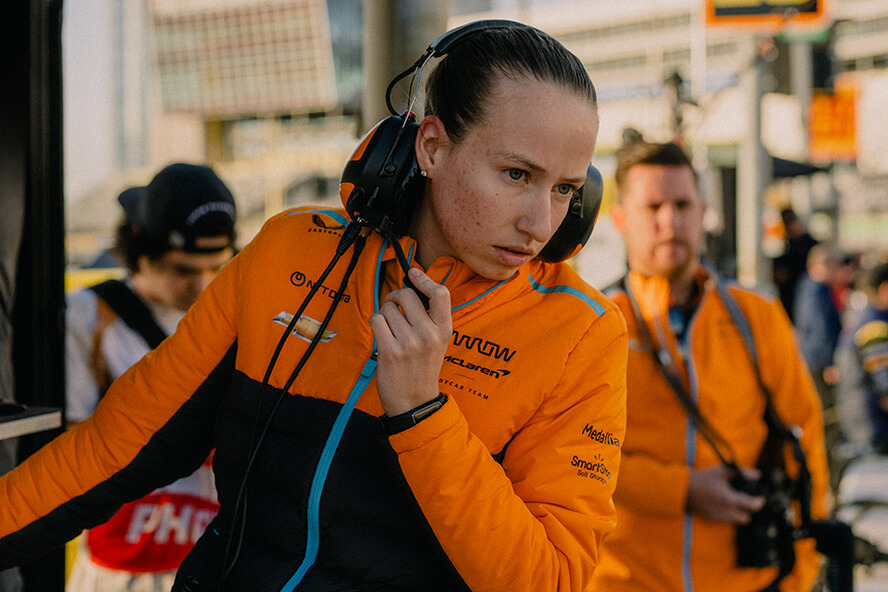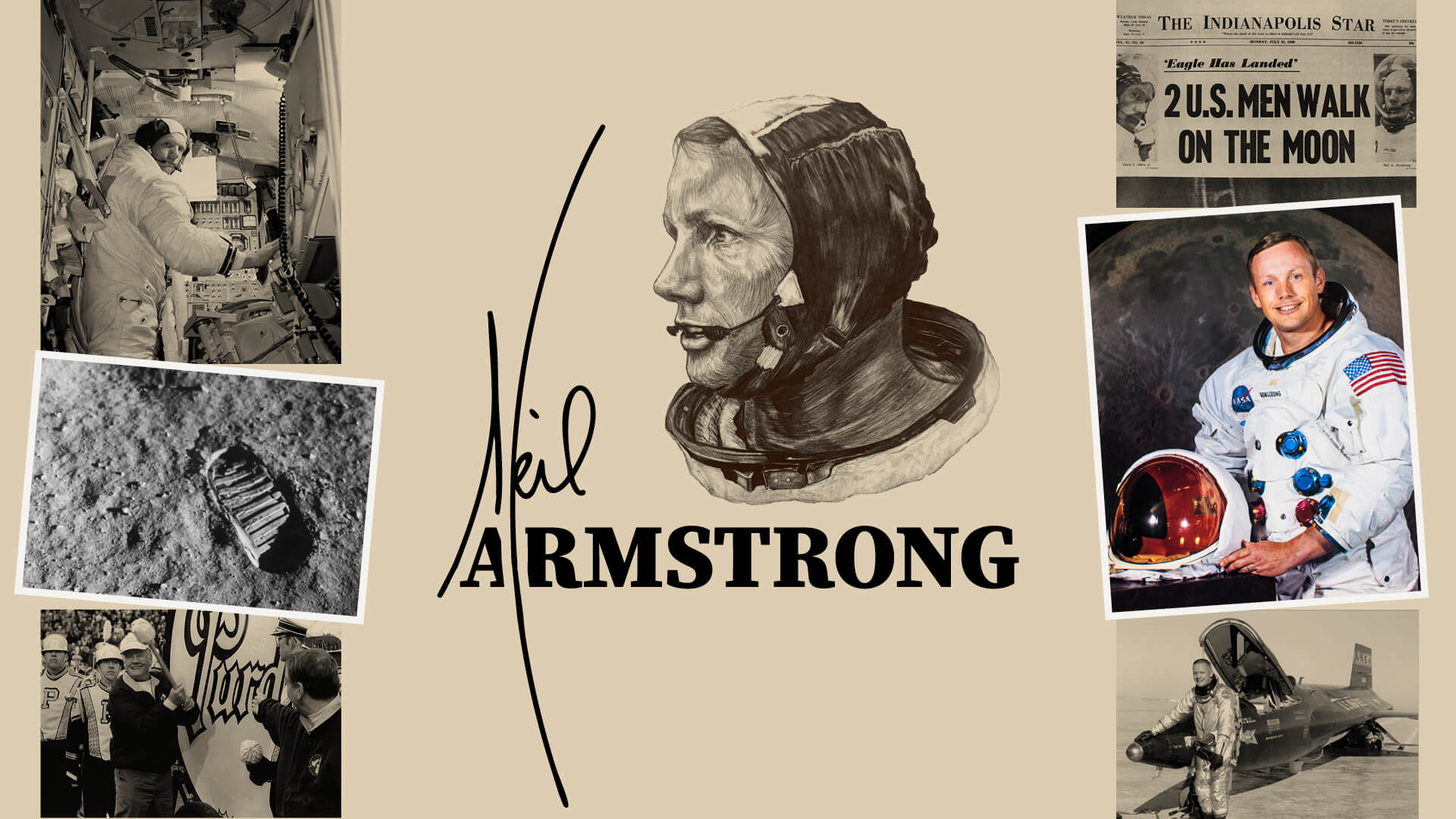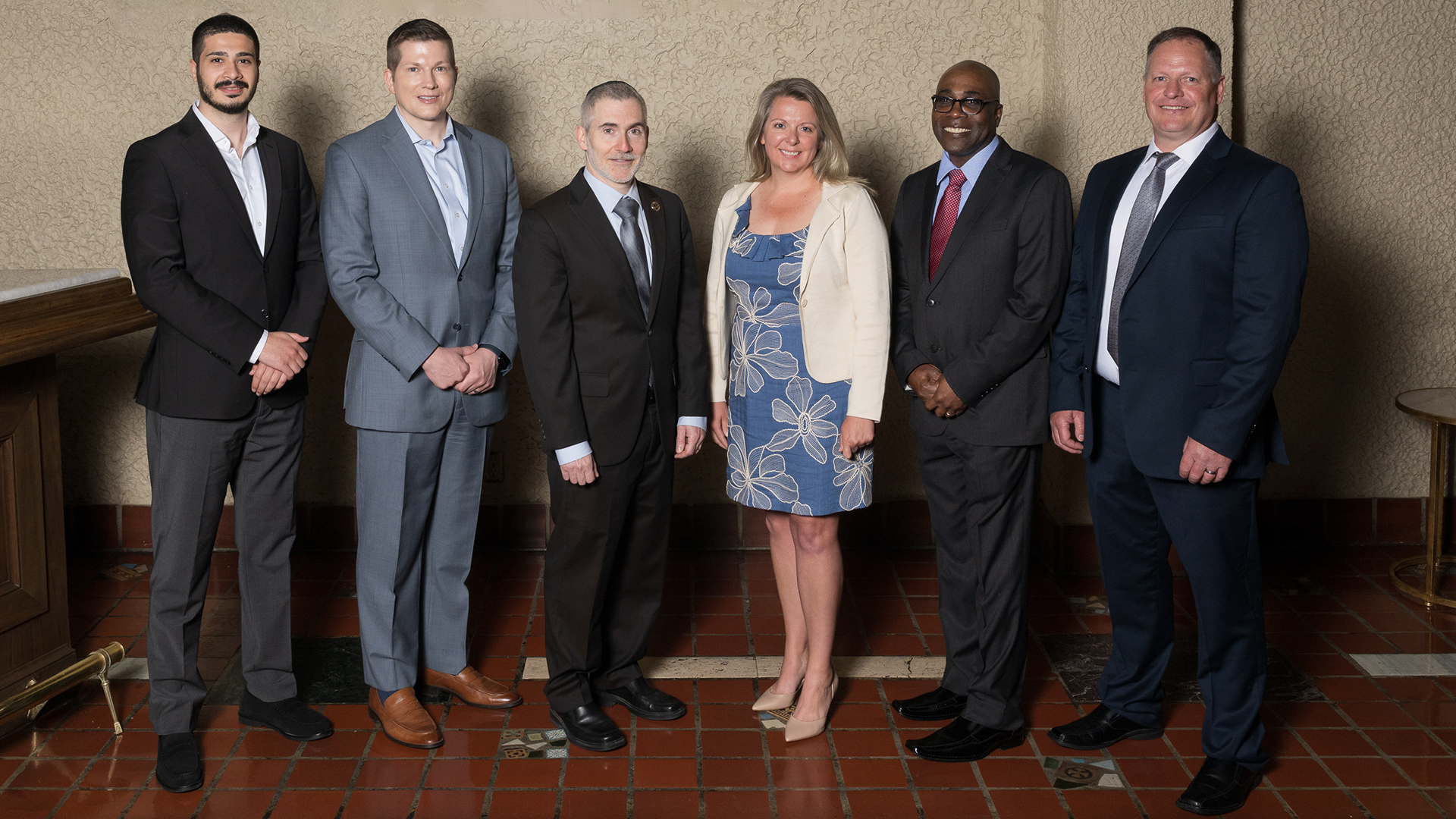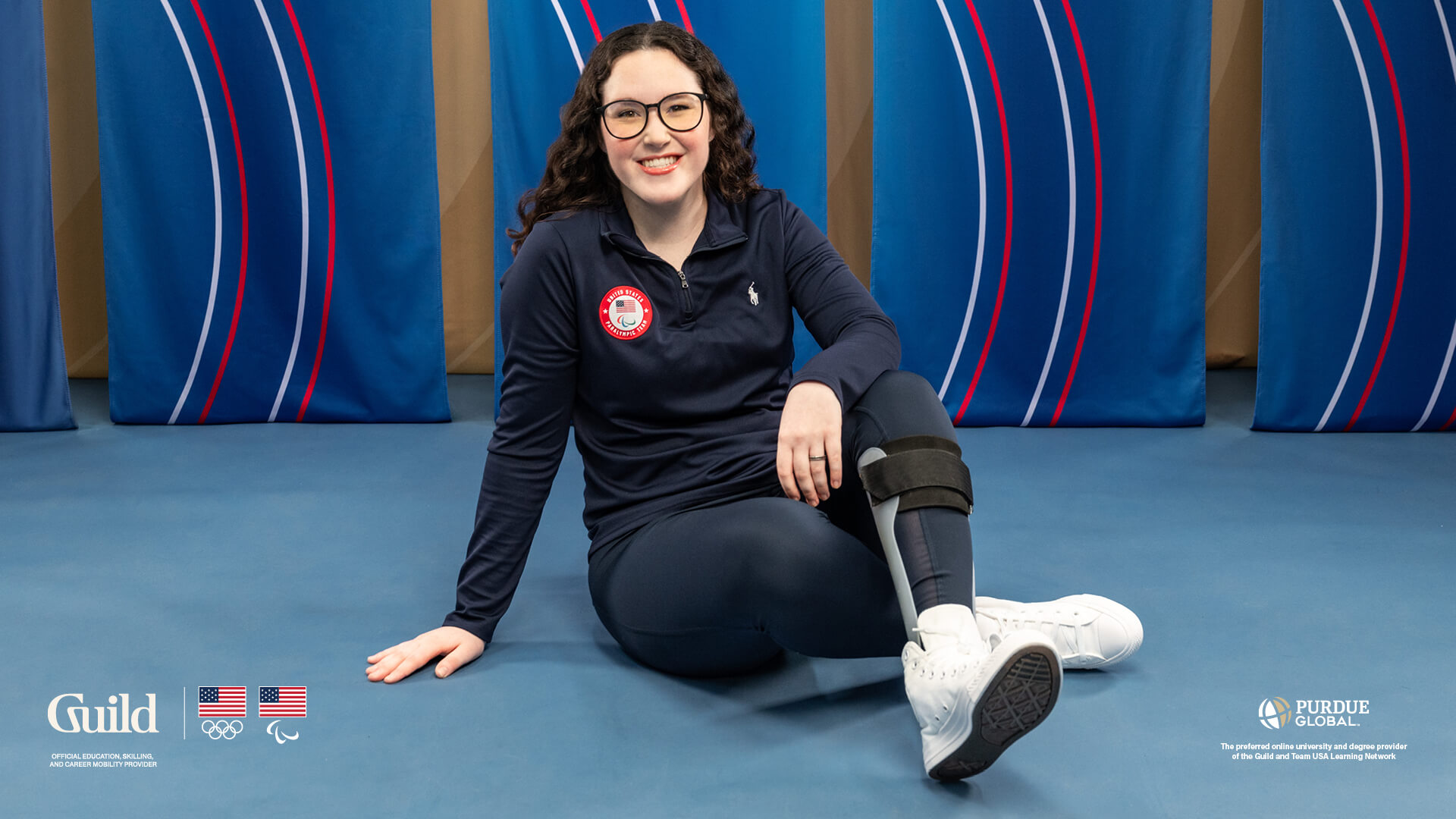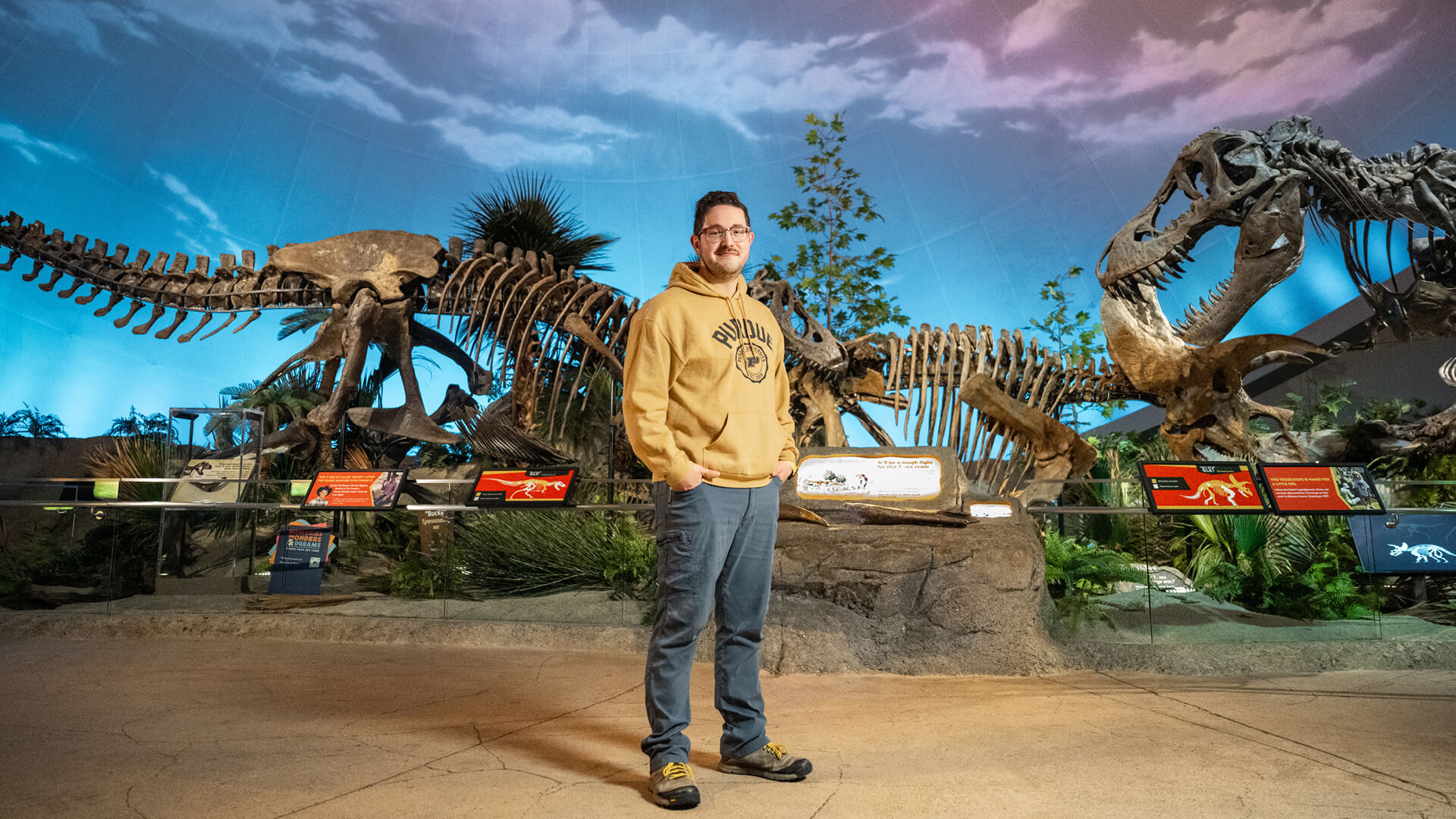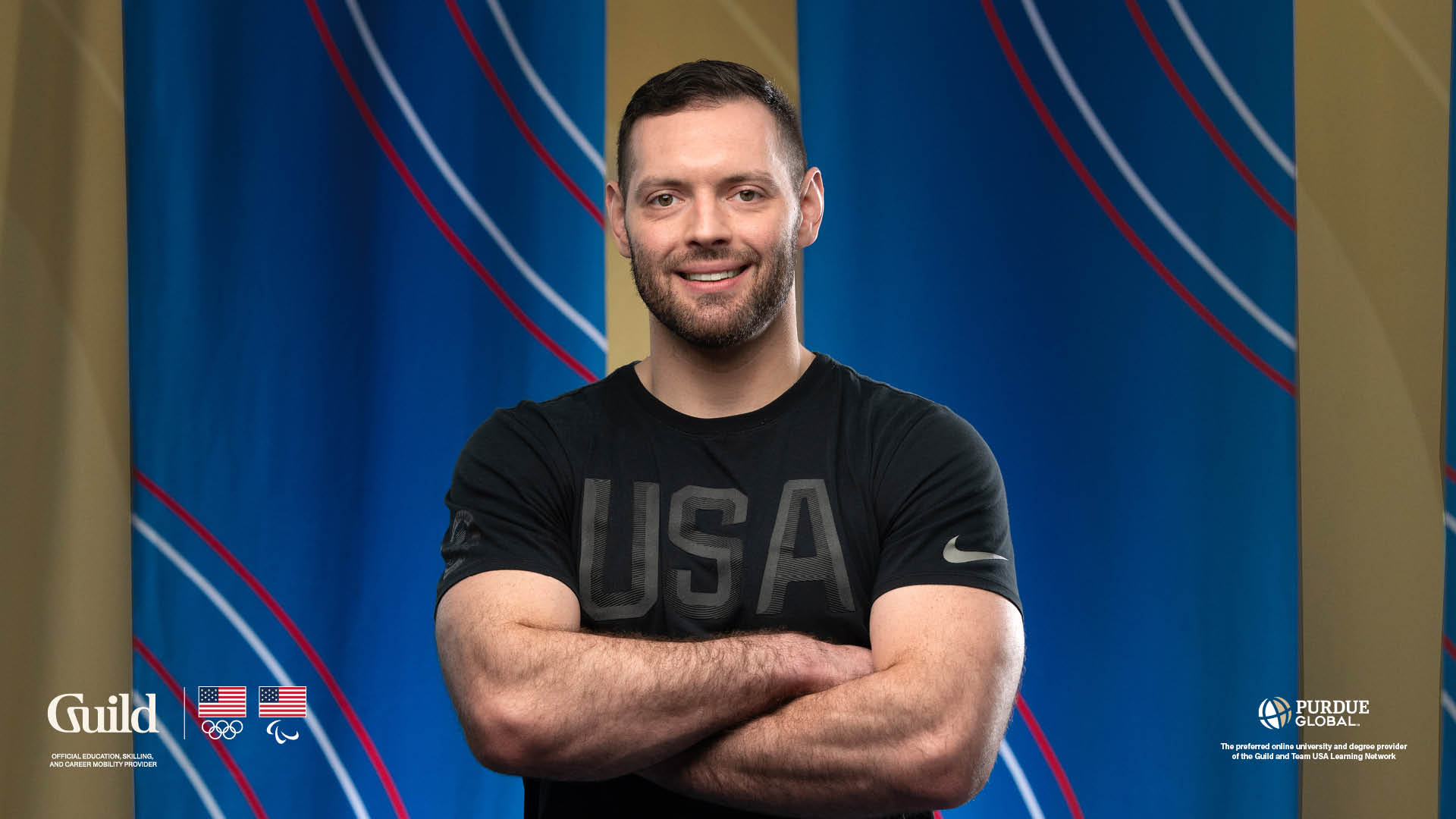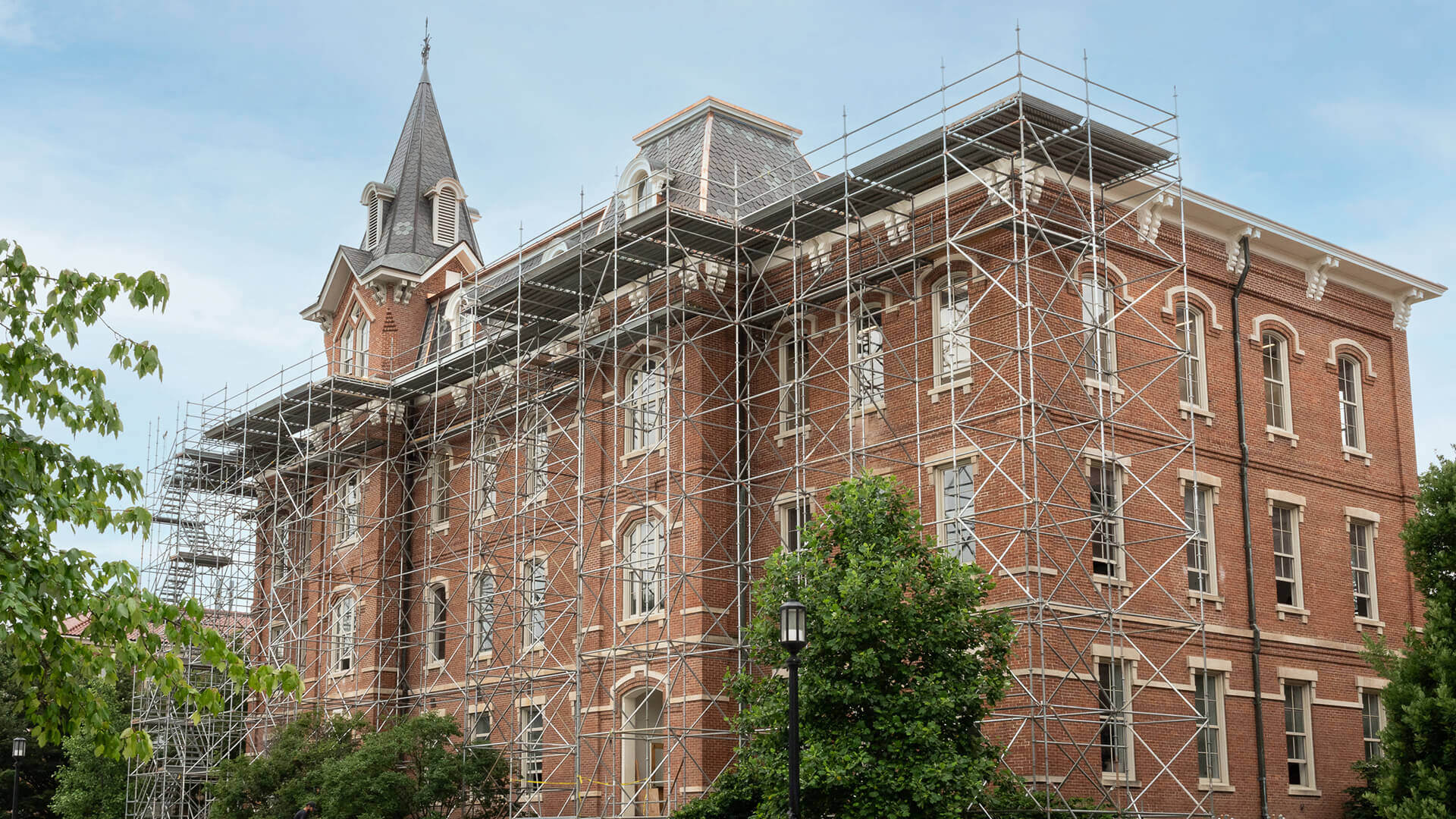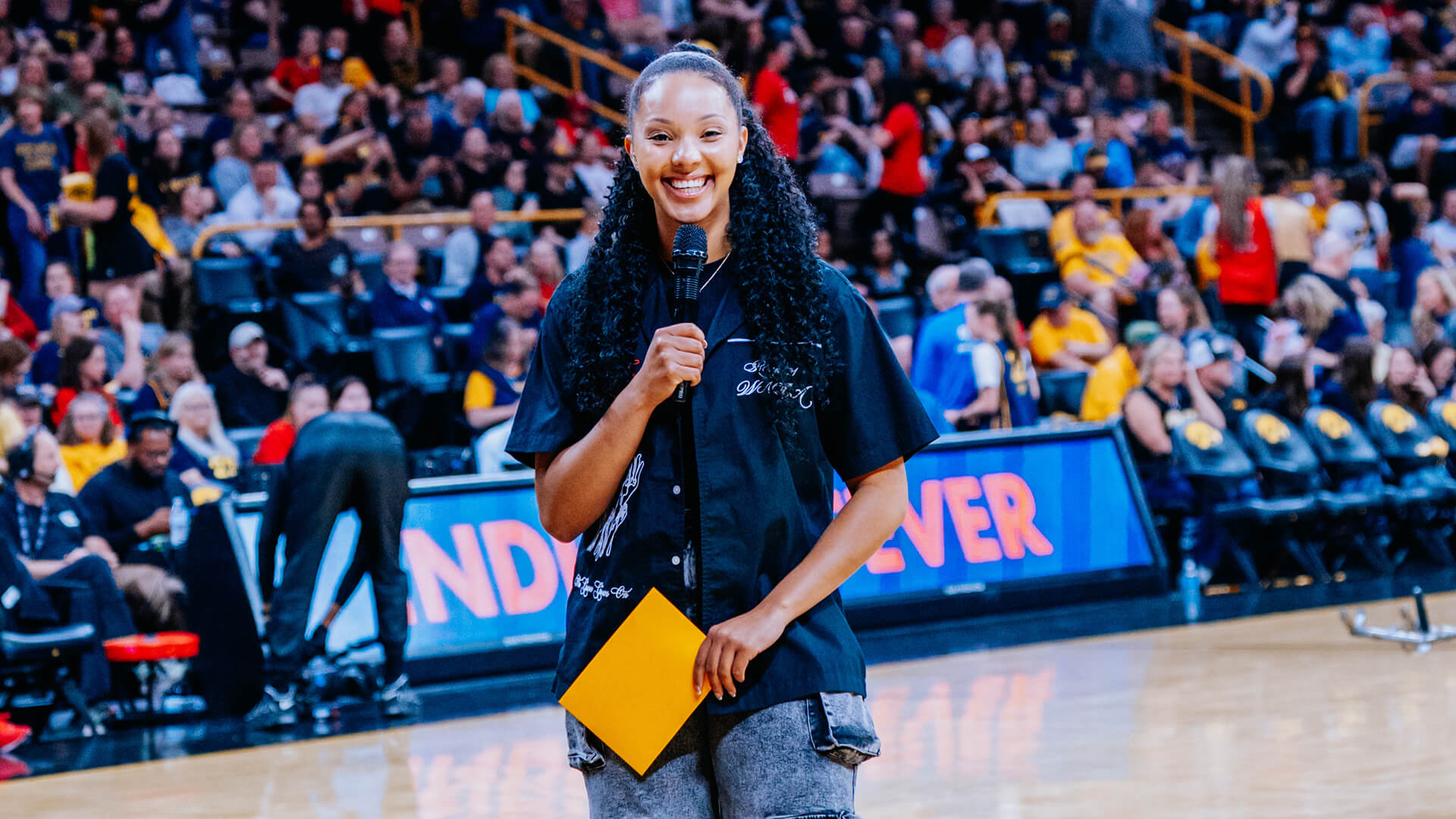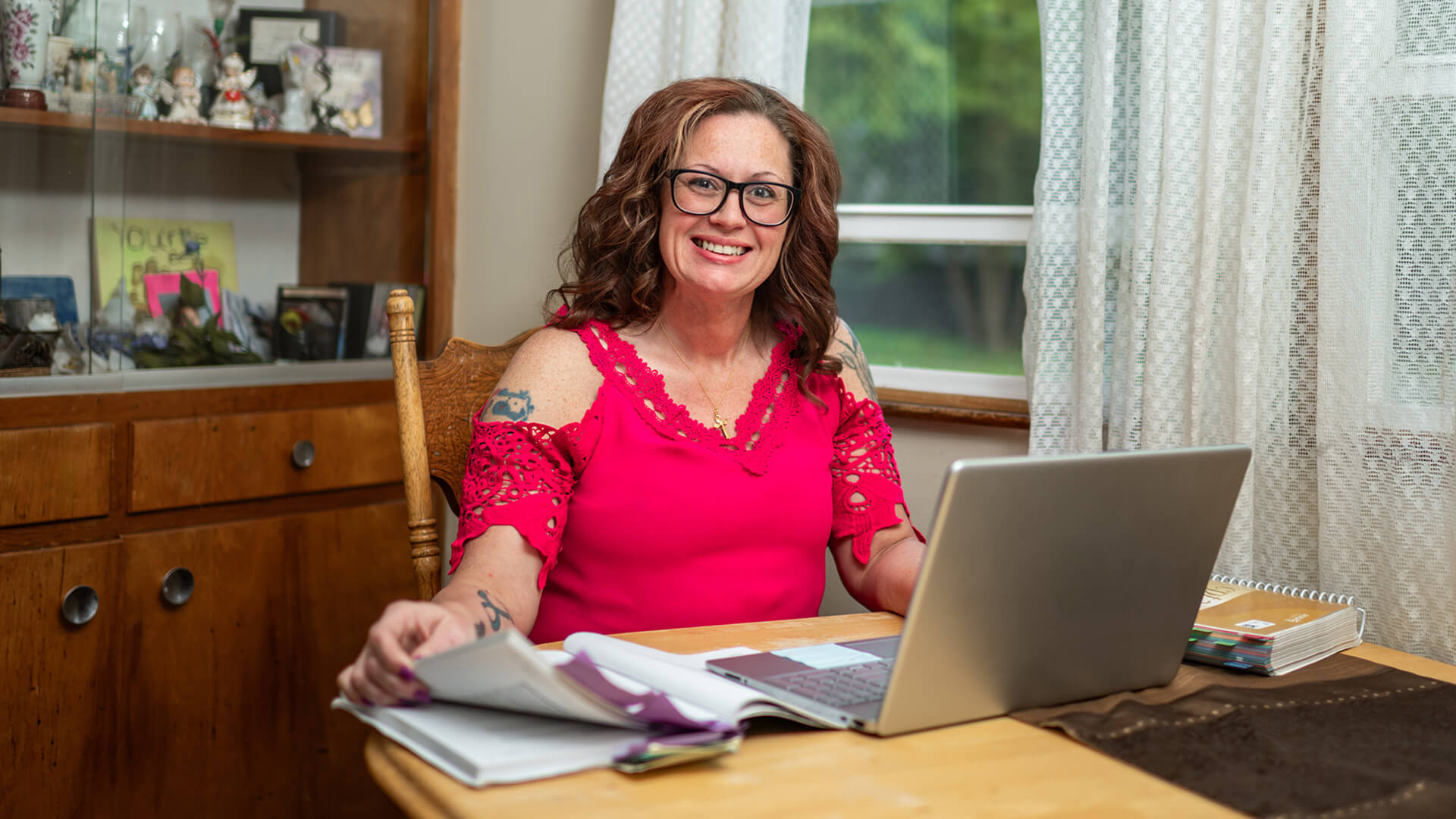From childhood racing fanatic to IndyCar engineer
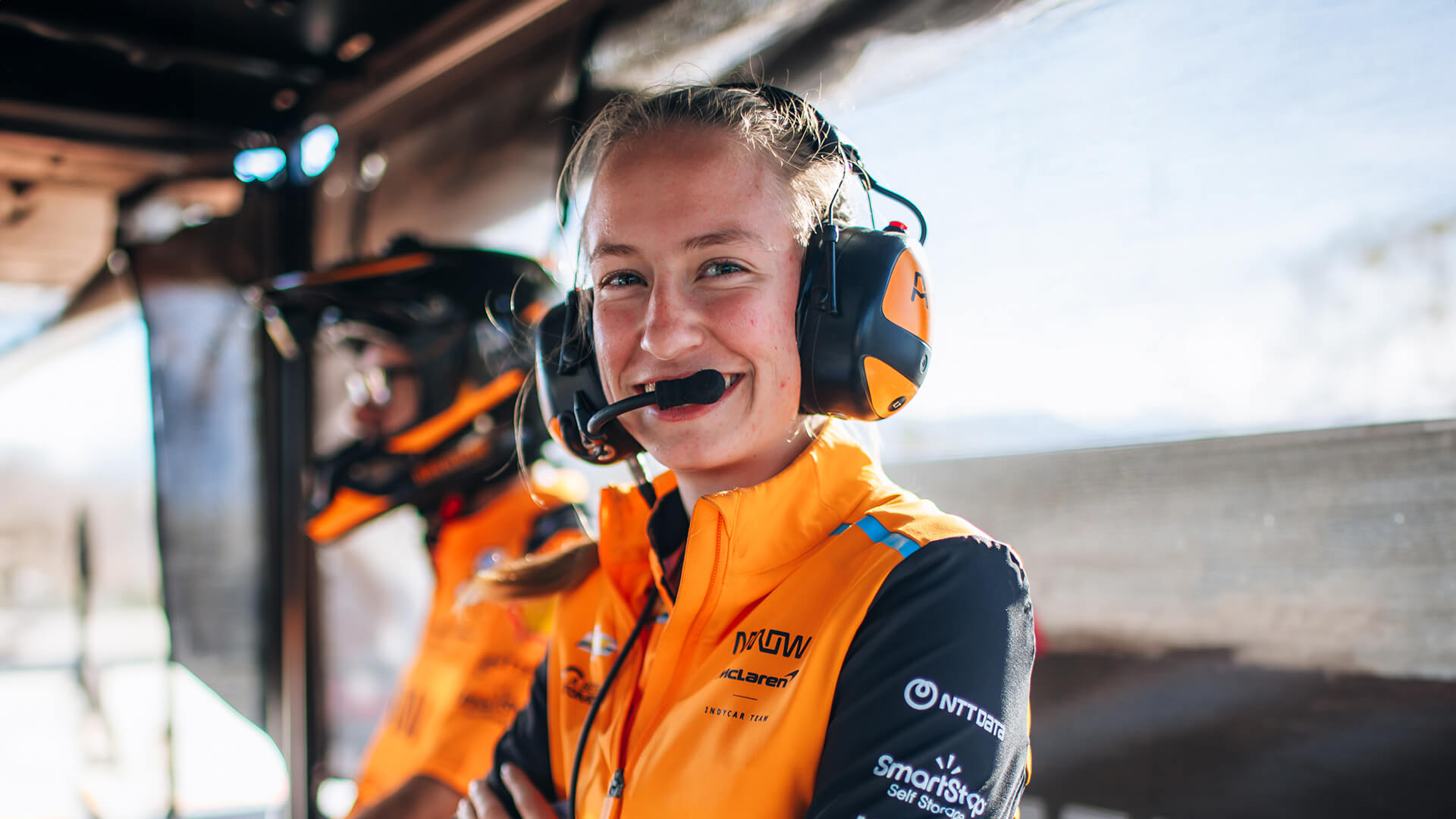
Lizzie Todd fell in love with IndyCar racing as an 8-year-old attending the Carb Day practice session ahead of the 2006 Indianapolis 500. The motorsports engineering alumna turned that childhood passion into a career, as she now works as a systems engineer for driver Pato O’Ward and the Arrow McLaren IndyCar Team. (Photo courtesy of Arrow McLaren IndyCar Team)
With strong support from many mentors, motorsports engineering graduate Lizzie Todd is living out her dream as a racing engineer
For the most part, Lizzie Todd’s memories of her first Indianapolis 500 are somewhat hazy.
She remembers watching most of that 2006 race from the railing near her family’s seats because the man sitting in front of her was so tall that 8-year-old Lizzie couldn’t see the track.
She describes her older sister Annie crying because Sam Hornish Jr. won the race, not Marco Andretti, who Annie thought was cute.
And she recalls tracking the leaders on a scorecard every 10 laps, hoping that her favorite drivers like Danica Patrick or Tony Kanaan would emerge victorious.
Alongside those vague recollections, Todd also has a crystal-clear memory from that race week — an inspirational moment that helped racing become a personal passion and, years later, her career.
She remembers arriving late to the Indianapolis Motor Speedway for the Carb Day practice session the Friday before the race. Her dad was annoyed, worrying that their tardiness might prevent the family from getting good seats. But it turned out to be the best thing that could have happened for the precocious 8-year-old passenger in his car.
The green flag fell just as the Todd family vehicle emerged from a tunnel alongside the track, so Lizzie was at eye level with a race car as it rapidly launched into a practice lap.
“This car went from 60 to 220 (mph) in the most insane amount of acceleration that I’d ever seen,” she says. “I never heard an engine like that in my life before, and we were so close that I felt it in my chest. I just fell in love.”
Right then and there, a future race engineer was born.
Todd put in lots of hard work since then — studying, internships, networking, real-world experience — helping her turn a childhood obsession into a position as systems engineer with the Arrow McLaren IndyCar Team. Along the way, she received guidance and support from a mentor she met during an Indy 500 a few years after that influential Carb Day: Terri Talbert-Hatch, co-founder of the IUPUI motorsports engineering program that is now under the Purdue University in Indianapolis umbrella.
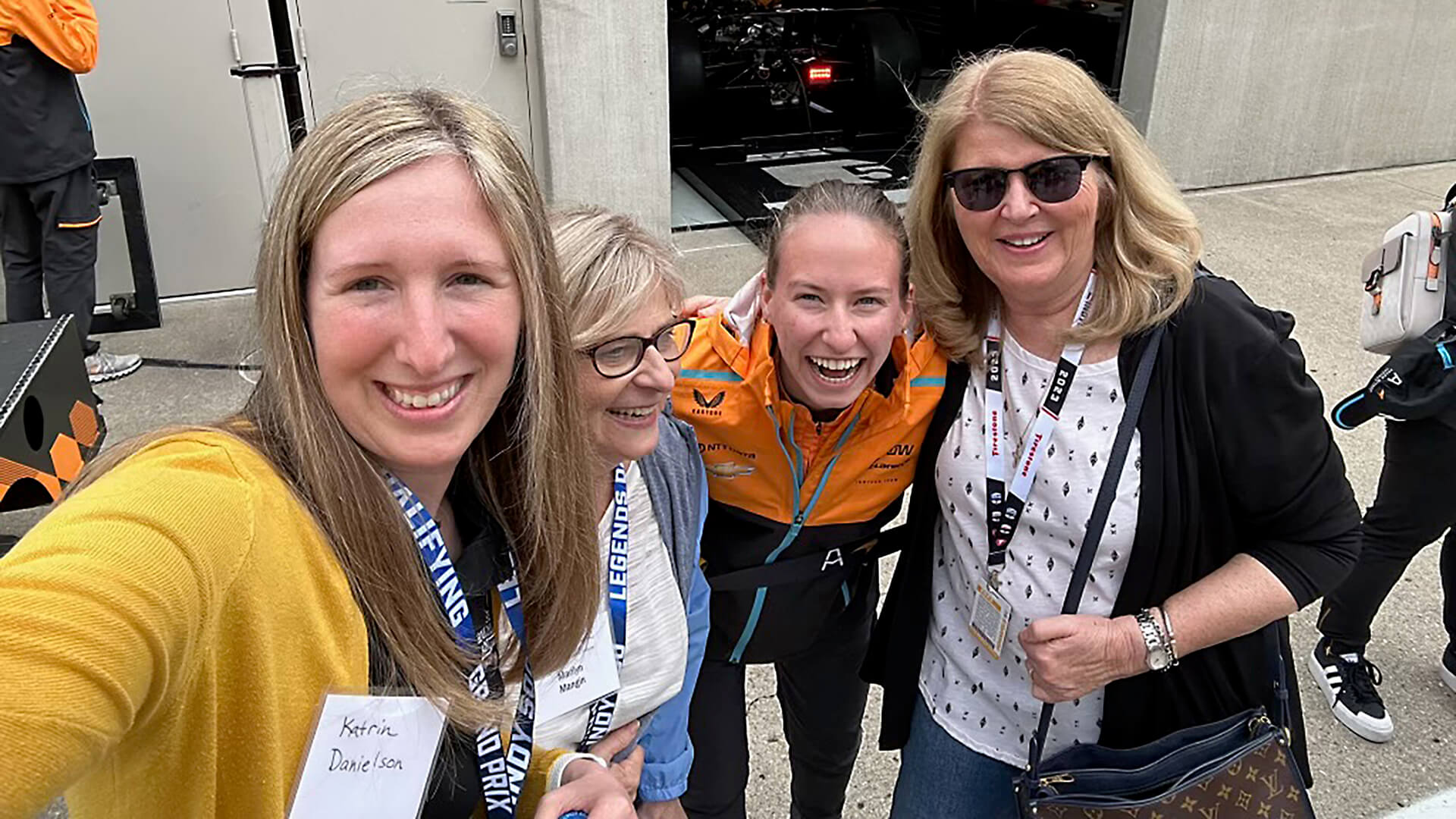
A supportive mentor
Todd and Talbert-Hatch’s friendship dates back to Todd’s eighth-grade year, when she emailed one of Talbert-Hatch’s colleagues requesting information on the motorsports engineering program she read about on indycar.com.
Talbert-Hatch responded and eventually invited Todd and her family to a sponsor event at driver Sarah Fisher’s shop during race week. She remembers 14-year-old Lizzie being somewhat timid at the event, afraid of doing something wrong in front of the industry bigwigs in attendance. But she also wanted to take every opportunity to motivate a bright, young go-getter to pursue a career in a business that had long been dominated by men.
“The motorsports engineering program was pretty new at that time, and to get a female especially, I was going to do whatever I could to encourage her,” says Talbert-Hatch, now an adjunct professor with the motorsports engineering program and administration consultant at IndyCar race car builder Dallara.
Such encouragement has become a running theme throughout their relationship.
Each summer during high school, Todd returned to Indianapolis to participate in the program’s Preparing Outstanding Women for Engineering Roles (POWER) camp. The camp typically exposed participants to opportunities with company partners like Rolls-Royce, Allison Transmission, Cummins Inc., or one of the many biomedical engineering companies in the area. But whenever Todd was in attendance, Talbert-Hatch made sure that she also got to meet with motorsports engineering students or participate in a racing-related activity, like the time she got to take a tour of Dallara’s production facility.
There are a lot of full-circle moments between when I think back to middle school to where I am today.
Lizzie Todd (BS motorsports engineering ’20) on the mentorship she has received from Terri Talbert-Hatch since middle school
“Terri has been monumental in helping me get to where I’m at. We still stay in touch, and we’re actually going out to dinner next week,” Todd says. “There are a lot of full-circle moments between when I think back to middle school to where I am today.”
Moments like when Todd decided to enroll in the program, graduating in 2020 from the only ABET-accredited motorsports engineering bachelor’s degree program in the U.S. Or when Talbert-Hatch offered guidance on internships that might help her get a foot in the door in the IndyCar circuit. Or even today, when she provides counsel and emotional support to a former student whose job can be extremely demanding.
“She’s my Indiana mom. That’s what I call her,” Todd says.
“So I just make sure I talk to her as a mom would,” Talbert-Hatch adds. “It’s just being a sounding board and sharing her ups and downs.”
Building experience, making connections
Only 26 years old, Todd has already squeezed a lot of ups into a relatively short time as a racing engineer.
As a college freshman, she was a member of a Society of Women Engineers team that earned a second-place finish at the Purdue Grand Prix. A year later, she began working on the IUPUI racing team, whose Mazda Miata competed in the Sports Car Club of America’s F-Production series.
Looking back on those extensive hands-on experiences, Todd recognizes the importance of other skills she didn’t even realize she was building.
“It mirrored what I do now: a lot of late nights in the shop, a lot of time spent with the same people. You’re building relationships with all these people,” Todd says. “Motorsports is so small that I work with people that I was on the motorsports program and in the motorsports club with every single day, whether they’re on different teams or not, but I see them all the time. It’s been really cool to know that you’ve got friends all across the paddock who went through the same kind of things you did, who went through the same struggles you did in the classroom.”
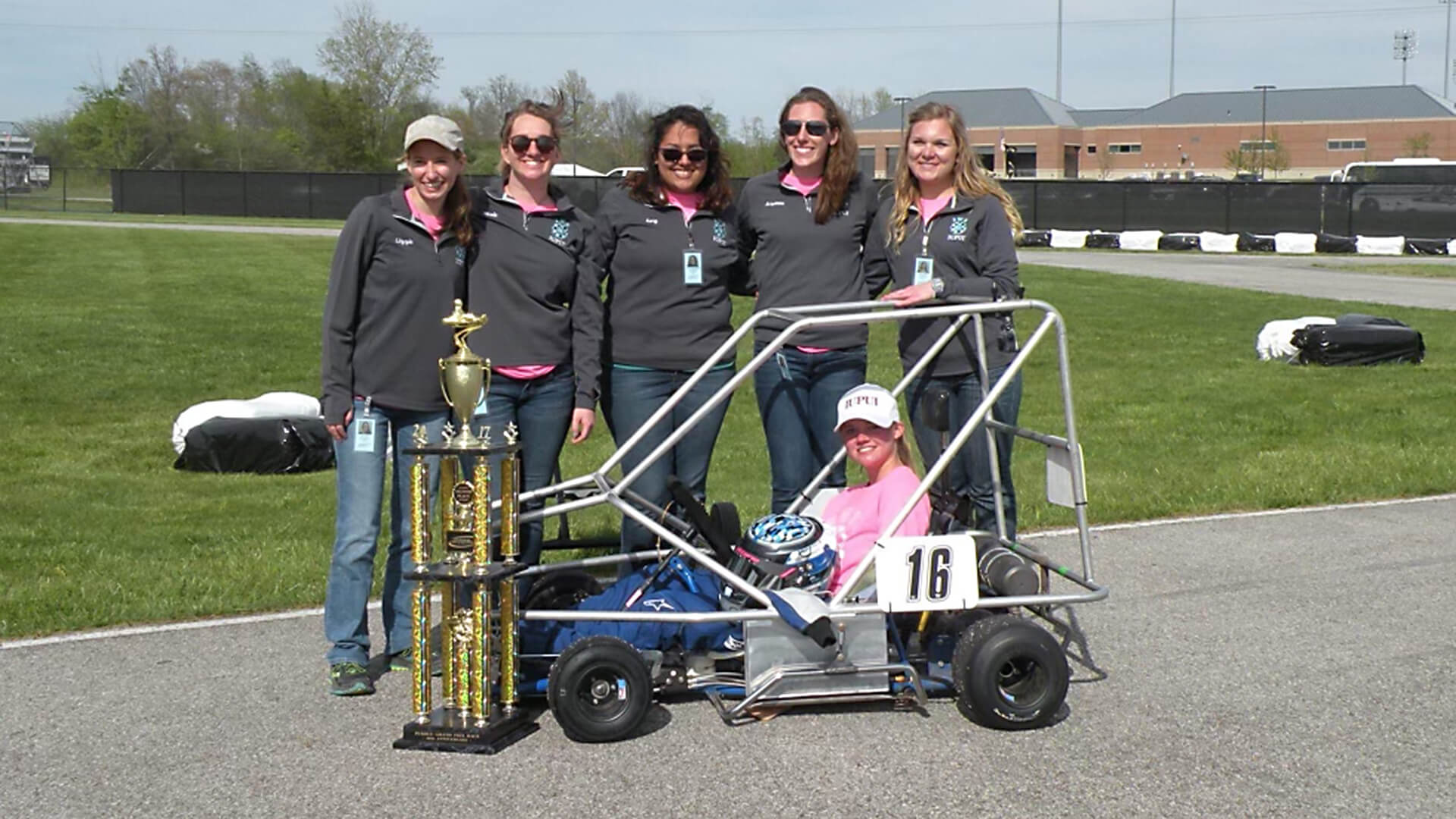
That’s an endless source of pride for Talbert-Hatch, who says she lives vicariously through the former students she frequently sees as an Indianapolis Motor Speedway regular during teams’ preparations for “The Greatest Spectacle in Racing.”
“It’s so fun in May to walk up and down pit row and say, ‘There’s one of ours, there’s two of ours, there’s three of ours,’” she says.
As her college career progressed, Todd expanded her knowledge base and her professional network through three important internships: as a member of the IndyCar accident investigation and tech inspection team; as a data engineering intern at Juncos Racing; and finally, as an engineering intern at Team Penske’s North Carolina headquarters.
“Our students get tired of hearing this from all our guest speakers: it’s networking, networking, networking. That’s how you get into motorsports,” Talbert-Hatch says.
Todd took that advice to heart, staying in touch with many established veterans who helped her build a career in the racing circuit she grew up following.
Career progress
Todd accepted the Penske internship in hopes that she might parlay it into a full-time job after graduation. While that didn’t pan out, her experience there did help her land a gig as a systems engineer at Andretti Autosport before she had even graduated from college.
She spent three seasons working on the No. 28 car driven by Ryan Hunter-Reay — incidentally, the winning driver in 2014, the only Indy 500 Todd has missed since attending the race for the first time — before accepting an opportunity to work at Arrow McLaren alongside another mentor, Kate Gundlach, whom she has admired since they met during Todd’s IndyCar internship.
“She was working at Ganassi at the time and came over and introduced herself and was like, ‘Whatever you need internship-wise, if you need any help, if you just want to go get dinner and ask me questions, I’m here for it. I’m here for you,’” Todd recalls. “To have that kind of mentorship right off the bat was incredible. And so I stayed in contact with her while I was in college, and she was super excited for me when I got my job at Andretti, and I always liked the idea of working with her.”
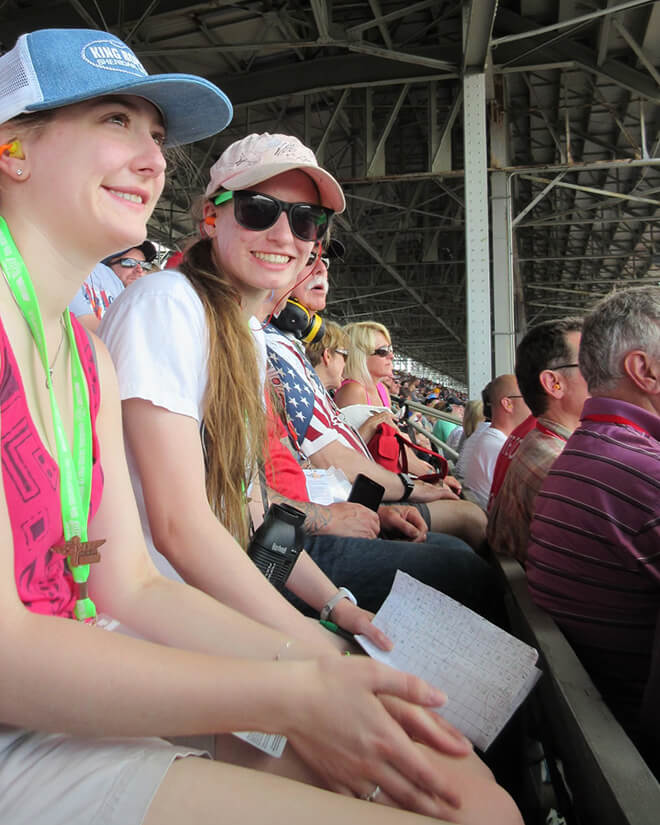
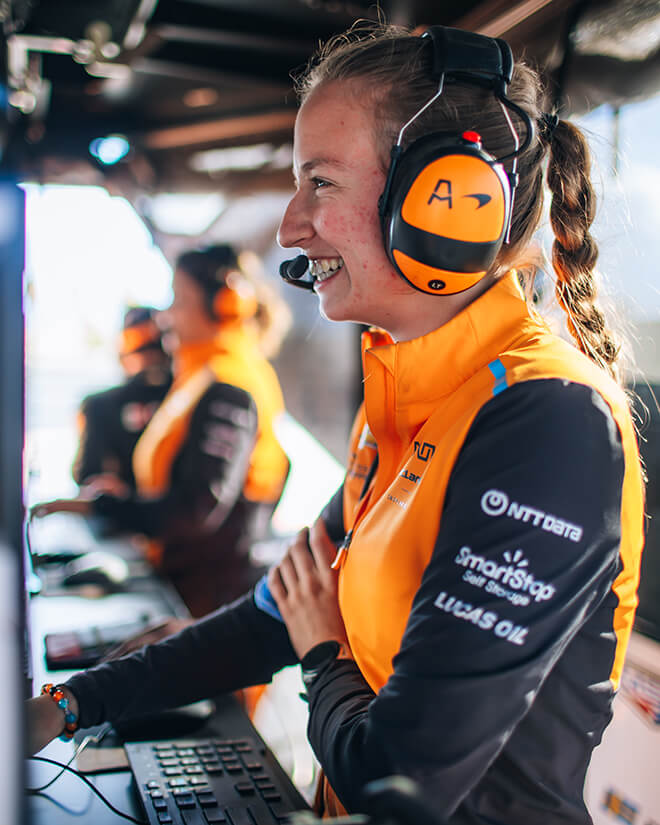
The opportunity arose during the 2022 season, when a systems engineer left the Arrow McLaren team where Gundlach worked. Todd accepted an offer to discuss the position with team leadership, recognized growth opportunities and was happy to have a chance to work alongside several friends she’d made during her first few years in the paddock.
For two seasons, she worked under performance engineer Gundlach (now Arrow McLaren driver Nolan Siegel’s race engineer) and race engineer Will Anderson on the No. 5 Arrow McLaren Chevrolet driven by Pato O’Ward, in a role with more responsibilities than the one she held at Andretti.
“I’m still responsible for all the electronics, radios, telemetry in the car, but I calculate fuel mileage now, which is a role that is done by the performance engineers at Andretti,” Todd says. “Now I have a much bigger responsibility car-side in practice, qualifying and, of course, the race because that is all strategy. So I work very closely with the strategist, and I definitely feel like I have a voice and an active role in the outcome of how we finish every race weekend.”
Another aspect of working for Arrow McLaren that initially appealed to Todd was its organizational reputation for creative thinking, for hiring from within and for providing practical opportunities to develop new skills.
Todd has already benefited from such an opportunity when she got to try her hand as a performance engineer — a position she hopes to occupy as her career progresses — during an offseason testing session.
She has made it so far so fast that Todd admits it can be frustrating to wait for that promotion to come. When those frustrations arise, she has the luxury of leaning on strong mentors who understand how hard the business can be and often have been in the very same position. They help her maintain a healthy perspective, knowing that if she keeps working hard and learning, more opportunities to advance will naturally arise.
“I have this specific idea of what I want. I know I want to be a performance engineer. I want to be a race engineer. I want to go into upper management,” Todd said during the 2024 season. “But timeline-wise, I want it to happen naturally. This is my fifth season as a systems engineer, which can be frustrating, but it has been really cool to kind of realize how far I’ve come and how much I’ve learned over the last five years. I know generally where I want to go and what it takes to get there, but I’m not going to put deadlines on myself and then be disappointed by it.
“I really want to be put in a position where I’m given a promotion because the people around me think I’m ready for it, and they know I’m going to succeed in that position.”
Spoken like an engineer who listened to mentors’ valuable guidance along the way.
Our students get tired of hearing this from all our guest speakers: it’s networking, networking, networking. That’s how you get into motorsports.
Terri Talbert Hatch,
co-founder of the motorsports engineering program
